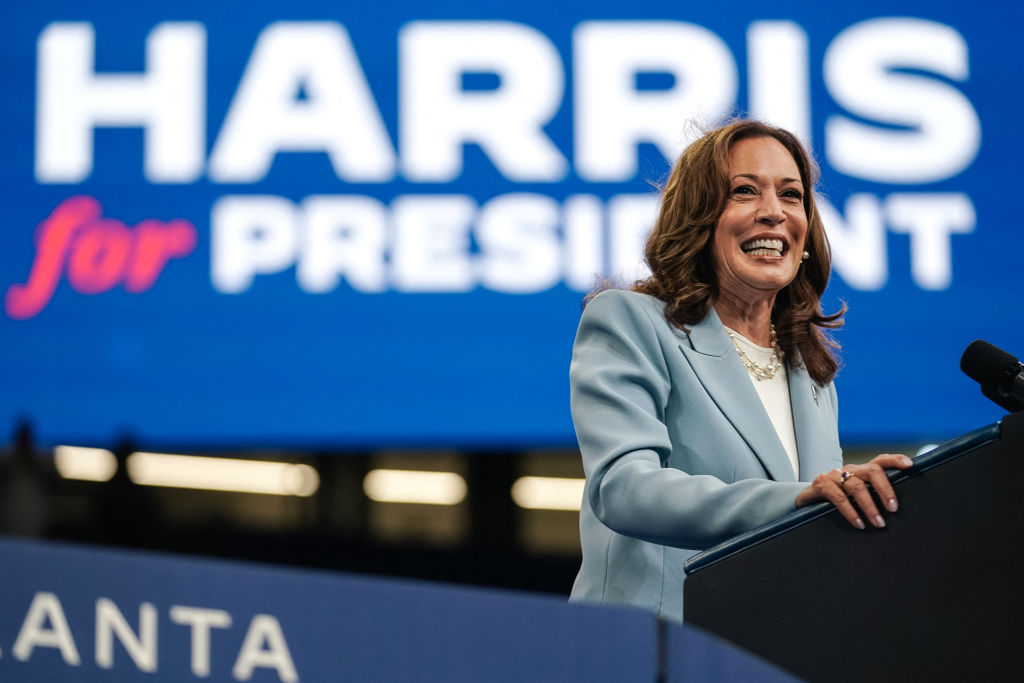When Kamala Harris sat across from Joy Behar on The View, the exchange revealed more than just political spin. Behar insisted Harris’ struggles on the campaign trail were largely about racism and sexism – that she “really lost” because of prejudice, not performance. Harris replied, “I’m not naive; race and gender do play a factor… I have never run as a woman or as a person of color. I have run because I believe I am the best to do the job.”
That answer might sound polished, but it doesn’t hold up to scrutiny. Harris has built her career on identity politics. She was polling below four percent in the Democratic primaries in 2019 – a campaign so weak it collapsed before a single vote was cast. Yet when Joe Biden pledged to select a woman as his running mate, the Democratic Party base and the media made clear that race and gender would be central factors in the choice. Harris ultimately benefited from that push for representation – her candidacy revived not because she was leading in the primaries, but because she fit the historic profile many Democrats wanted to showcase.”
Let’s be honest: without Biden’s pledge, Harris would not be vice president today. She was not propelled to the ticket because she outperformed the competition, but because the Democratic Party wanted to showcase representation. Identity was wielded as power. That’s the plain truth.
And that is what makes her The View comments so hollow. Harris cannot run on her race and gender when it benefits her – and then dismiss questions about competence by claiming she never used identity in the first place. Voters remember the reality. They saw a campaign that leaned heavily on being the “first” – first woman, first black woman, first South Asian woman – without ever answering the more pressing question: first in what vision for America?
The tired refrain from Democrats that every failed candidate was the victim of racism, sexism, or some combination of both has worn thin. Hillary Clinton blamed misogyny in 2016. Stacey Abrams has repeatedly blamed voter suppression for her gubernatorial losses. Now Joy Behar and Biden himself float racism and sexism as the reasons Harris couldn’t break through nationally. But at some point, the question must be asked: why can’t Democratic leaders admit when a candidate simply ran a poor campaign?
Harris’ 2020 run faltered not because America is irredeemably bigoted, but because she never offered voters a clear or compelling reason to support her. Her positions shifted constantly – leftward on criminal justice, back toward the middle on health care, then left again on the Green New Deal. She struggled to define herself, and voters noticed. That isn’t prejudice; that’s politics.
What makes this cycle especially insulting is the implicit message it sends to the electorate. If voters reject a candidate of color or a female candidate, Democrats too often suggest it must be because of bias. But that robs voters of agency. It tells them their decisions weren’t thoughtful or principled – just hateful. And it shields candidates like Harris from honest self-reflection about why they fail to connect.
The irony is thick. Harris’ defenders weaponize race and gender as a shield against criticism. Yet Harris herself has never hesitated to display her identity as a credential when convenient. She has used it as her elevator to higher office. When it no longer works, she suddenly insists it was never about race or gender at all. That is not only disingenuous, it is corrosive to public trust.
Black conservatives have been sounding this alarm for years. We understand that tying our worth to identity politics doesn’t elevate us – it reduces us. It reduces the black experience to a talking point, the female experience to a checkbox, and every election outcome to a morality play about prejudice. Booker T. Washington warned against leaning on grievance instead of competence. Shelby Steele has written powerfully about how white guilt sustains this very cycle. Yet Democrats remain stuck in it, because it offers them a convenient excuse for failure and a convenient tool for power.
Kamala Harris wants it both ways: to be celebrated for breaking barriers, and excused for her failures by blaming the barriers. But leadership requires something deeper. It requires being judged on results, not optics. On merit, not identity. And on vision, not victimhood.
In the end, what voters want is not complicated. They want candidates who are competent, steady, and clear about what they stand for. They want policies that keep their families safe, grow the economy, and restore trust in institutions. What they don’t want is another lecture that their skepticism of a weak candidate must be rooted in prejudice.
Kamala Harris’ rhetoric isn’t just old and tired – it’s insulting. It tells the very people she claims to represent that their only role is to cheer her identity, not to question her record. That’s not empowerment. That’s manipulation. And voters are wise to it.
If Harris truly believes she is “the best to do the job,” then let her prove it on the merits. Stop blaming racism and sexism for every political misstep. Stop reducing voters to bigots for exercising their judgment. Because at the end of the day, America deserves leaders who rise on vision, not excuses.


























Leave a Reply